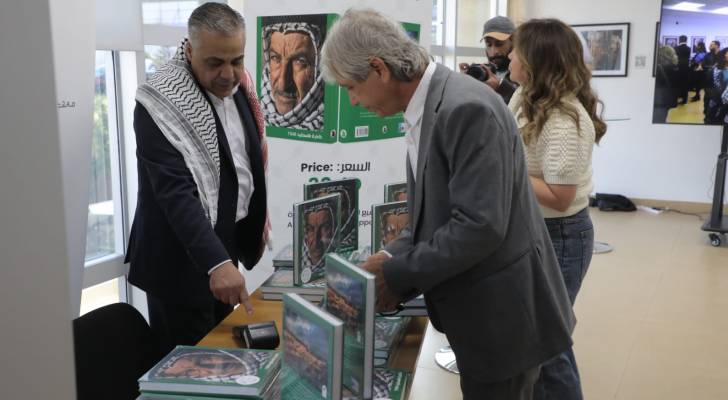Bringing memory to print: Arabic edition of Palestine Memory 1948 launched
At the Jordan Media Institute in Amman, a gathering took place, not just to launch a book, but to honor a story that has fought to stay alive.
The Arabic edition of “Palestine Memory 1948” was officially released, bringing together voices committed to preserving the truth through testimony.
Her Royal Highness Princess Rym Ali opened the event with a powerful message: the Palestinian narrative must be heard, shared, and seen for what it is, a call for dignity, equality, and human recognition. “Telling the story, and telling it right, is how we resist erasure,” she said.
The author, journalist Chris Conti, spoke about the three-year journey it took to bring this book to life. But she made it clear, the real authors are the 21 Palestinians whose voices form the heart of the book. Their memories, their longing, and their determination under occupation are what shaped this powerful collective testimony.
Dr. Ghassan Abu-Sittah, the keynote speaker, drew a direct line between the events of 1948 and the ongoing genocide in Gaza.
What’s happening now, he said, is not isolated; it’s a continuation of a decades-long struggle to erase a people and replace them. But memory stands in the way. “What began as forced displacement has become a fight for survival,” he said.
The evening featured more than speeches. A short film documenting firsthand Nakba testimonies was screened, and a photo exhibit, in collaboration with Image Festival Amman, which visually captured moments of exile and steadfastness.
“Palestine Memory 1948” is not just a book. It’s a living archive of pain and perseverance, collecting stories from Palestinians across the world who lived through the Nakba and beyond.
Published in Arabic, English, French, and Spanish, the book aims to reach a global audience, and all proceeds from the Arabic edition go toward mental health and recovery programs for survivors of 'Israeli' attacks in Gaza.




